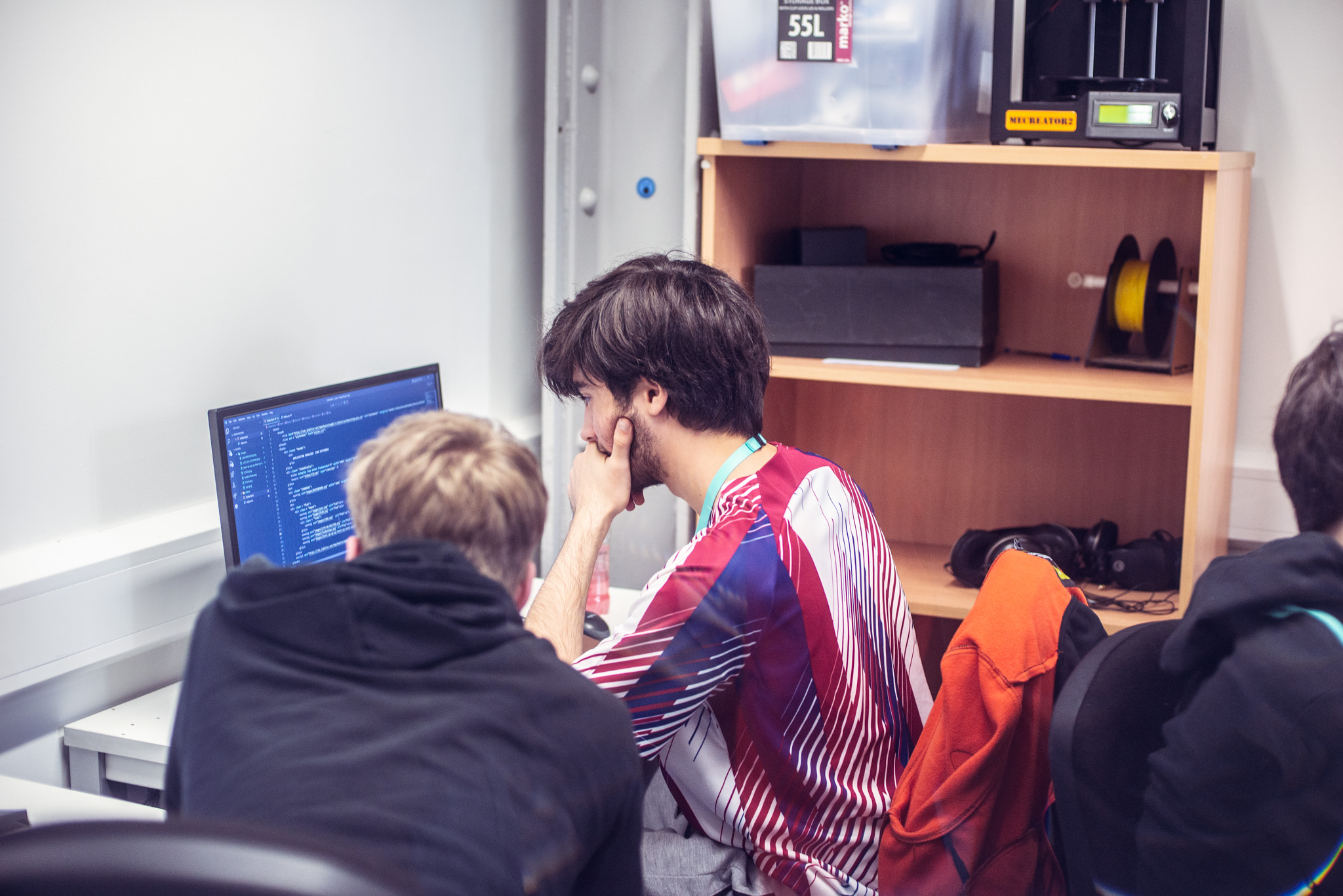Are you a school leaver looking to move into the digital and tech industries? Look no further than the T-Level Software Development course offered at Access Creative College. This course is not just your typical programming course but a practical qualification, designed to help you kickstart a career in software development.
![]()
![]()
![]()
![]()
![]()
![]()

Software development course overview and benefits
The T-Level Software Development course is exciting and guides budding students on their journey towards becoming an expert in software development. The course takes you through the entire software development process, starting with building your problem-solving and programming skills using Python, C#, and JavaScript, to researching and using emerging technologies like AI and VR.
One of the major benefits of this course is that it offers an enrichment programme outside your weekly timetable. This programme gives you access to creative projects, guest lectures, and events, as well as an online learning programme to help support your studies outside college hours.
The course also offers access to high-spec computers filled with industry-standard software for programming and deploying applications, along with networking and cybersecurity tools. Additionally, you will be able to study for an Amazon Web Service certification.
![]()
![]()
![]()
![]()
![]()
![]()


Course details and how to apply
To be eligible for our Software Development course, applicants must possess four GCSEs at grade 4 (A*-C) or above, including Mathematics, English Language, or English Literature. Equivalent qualifications will also be considered on a case-by-case basis. The course is free for students aged between 16-18 and 19-24 for those with an Education Health and Care Plan (EHCP).
The T-Level Software Development course at Access Creative College runs for 38 weeks, and a typical week is made up of 20 hours. The hours of study consist of various subjects in your chosen discipline, as well as an hour a week with your course group and Course Leader, and 1.5 hours a week developing your transferable skills through their careers programme, GoLive. If you need to retake Maths and English due to achieving a grade 3 or below, you will receive two hours a week per subject.
Apply for our Software Development course ready for September 2024.
The course is available at our campuses in Bristol, London, Manchester, and Norwich.
![]()
![]()
![]()
![]()
![]()
![]()
Boost your career prospects
The T-Level Software Development course is partly designed to allow students to progress to multiple pathways, including university courses and level 4 apprenticeships. For university courses, you can consider BSc (Hons) Computer Science, BSc (Hons) Cyber Security, BSc (Hons) Software Engineering, or BSc (Hons) AI and Data Science. For level 4 apprenticeships, you can consider Software Development, Business Analysis, or Data Analysis.
After completing the course, there are several career opportunities within the digital and tech industries that you can explore. Some options are below:
- Software Developer/Engineer: These individuals are the creative minds behind computer programs. They are responsible for executing full lifecycle software development, producing well-designed, testable, efficient code, and fixing any issues that arise. They typically analyse users’ needs, design software to meet those needs and ensure it functions correctly.
- Web Developer: Web developers create and maintain websites or web applications. They work in various environments, including corporations, governments, or as freelancers, and have a deep knowledge of programming languages, HTML, CSS, JavaScript, and more. Their work involves designing website layouts, integrating graphics and other content, plus building web applications.
- Network Engineer: Network engineers, also known as network architects, plan, construct, and manage networks to ensure they’re optimised and functioning as intended. This can include wide area networks (WANs), local area networks (LANs), and intranets. They often work closely with an organisation’s chief technology officer to predict where new networks are most needed.
- Test Engineer/Software Tester: Test engineers are responsible for conducting automated and manual tests to ensure the software created by developers is fit for purpose. Their role includes designing test scripts, benchmarking test processes, recording, and documenting results, and providing feedback to developers to enhance the quality of the product.
- Cyber Security Analyst: Cybersecurity analysts play a key role in securing information systems. They monitor their organisation’s networks for security breaches and investigate violations when they occur. They also help design, implement, and maintain the company’s security solutions.
- Games Developer: Games developers are software developers and engineers who specialise in video game technology. They are involved in the creation and production of games, working on the concept, design, programming, mathematics, complex algorithms, and problem-solving.
You can also consider roles such as IT Technician, Data Scientist, AI Developer, Content Manager, UI/UX Designer, Information Architect, or Accessibility Specialist.
![]()
![]()
![]()
![]()
![]()
![]()
Industry trends and future opportunities
The software development landscape in the UK is always evolving, influenced by cutting-edge technologies and regulatory advancements. As we look toward 2024, several key trends are shaping the industry, creating both challenges and opportunities for aspiring software developers.
One of the biggest trends is the rise of generative AI. This technology is revolutionising how businesses operate, offering new insights and efficiencies. However, with these advancements comes a need for robust governance and risk management to address concerns such as data privacy and intellectual property. For software developers, mastering AI technologies opens doors to roles in industry-leading projects and innovations.
Investment in digital infrastructure is another significant trend. With the increasing adoption of AI, the Internet of Things (IoT), and enterprise cloud computing, there’s a growing demand for enhanced computing capacity and data storage solutions. This is driving growth in sectors focused on data centres and digital infrastructure, presenting software developers with opportunities to engage in cutting-edge projects that are crucial to the digital economy.
Pursuing a software development course in the UK can be instrumental in keeping up to date with these trends. Such courses not only equip learners with the technical skills needed to navigate the current tech landscape but also provide insights into regulatory requirements and emerging technologies. By aligning with industry trends, software developers can secure roles that are not only rewarding but also pivotal in shaping the future of technology.
![]()
![]()
![]()
![]()
![]()
![]()


Start your journey today!
The T-Level Software Development course offers an enrichment programme, access to high-spec computers filled with industry-standard software for programming and deploying applications, and opportunities to study for an Amazon Web Service certification.
This course allows students to progress to multiple pathways, including university courses and level 4 apprenticeships. After completing the course, graduates can explore career opportunities within the digital and tech industries, ranging from Software Developer/Engineer, Web Developer, and Network Engineer, to Cybersecurity Analyst and Games Developer.
Apply for this course and start your journey towards becoming a professional software developer today!
- A guide to the best free Mental Health apps in 2024 - October 10, 2024
- SoundCloud vs Spotify: Which is best for a new music artist? - October 7, 2024
- What is the best game engine for beginners in 2024? - September 23, 2024